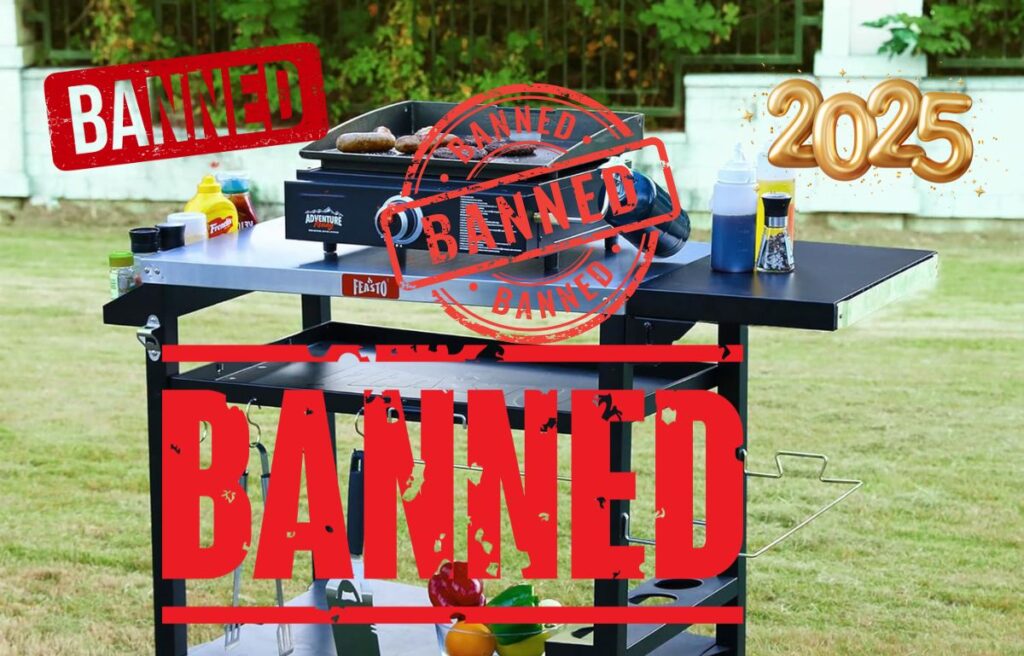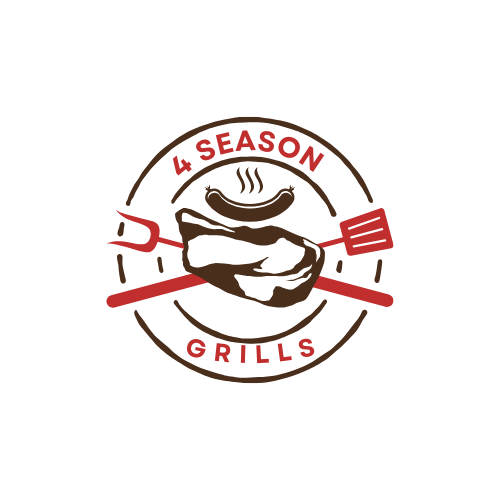Is it illegal to grill outside in California in 2025? Let’s get to know about it in today’s guide.
Grilling, no matter what looks like simple cooking; in many states, it is illegal or subject to restrictions and regulations by the local government.
Speaking of it, the State of California is known for its diverse climate and environmental challenges, and grilling outside comes with some safety conditions.
Saying that grilling is not illegal, but you can do it safely by following the local regulations to avoid any fire hazard.
What else is necessary to know about grilling outside in California? Here, it is explained.
The Basics of Legal Framework for Is It Illegal to Grill Outside in California?

California law does not prohibit outdoor grilling, but regulations vary depending on location and environmental conditions. Key statewide provisions include:
1. Fire Safety Laws
- Open flames, such as those from grills, must comply with fire safety rules in fire-prone areas. These rules are enforced by the California Department of Forestry and Fire Protection (Cal Fire), especially during wildfire season.
- Barbecue grills are often required to be positioned at least 10 feet away from combustible structures, including houses, fences, and vegetation, to reduce the risk of accidental fires.
- Some areas may mandate the use of spark arrestors or flame-resistant mats beneath grills to prevent fire hazards.
2. Air Quality Regulations
- Counties in California enforce air quality standards that may restrict grilling during high pollution days. For instance, during “Spare the Air” alerts issued by the Bay Area Air Quality Management District, grilling with charcoal or wood is discouraged or prohibited.
- Specific regions may have restrictions on the types of fuels allowed for grilling to reduce emissions and improve air quality.
The Local Ordinances
Municipalities may impose additional restrictions tailored to local conditions. Examples include:
- Apartment and Condo Complexes: Many multi-family housing units prohibit the use of grills on balconies or patios due to fire hazards and insurance requirements. Gas grills with small propane tanks may be allowed in some cases.
- Parks and Public Spaces: Grilling in public parks is typically confined to designated areas equipped with fixed grills. Portable grills may require permits, and users must adhere to posted rules, such as cleaning up after use and disposing of coals in designated receptacles.
Factors Affecting Grilling Legality in Different States
The key factors that may impact the grilling legality includes
Residential Restrictions
- Homeowners Associations (HOAs): HOAs often impose specific rules on grilling to maintain safety and aesthetic standards within communities. These rules might include restrictions on grill types, placement, or usage hours.
- Rental Properties: Lease agreements frequently include clauses about grilling, such as prohibiting open-flame grills on balconies or limiting the use of charcoal grills to communal areas.
Environmental Considerations
- Wildfire Risk: California’s dry climate, especially during summer and fall, makes the state particularly susceptible to wildfires. Grilling activities in fire-prone zones are often subject to additional scrutiny, and open flames may be banned during red flag warnings.
- Drought Conditions: Severe droughts can lead to restrictions on outdoor grilling as a precautionary measure to minimize the risk of wildfires. Local governments may issue temporary bans during peak fire seasons.
How to Grill Safely and Legally? Best Practices to Follow When Grilling Outside in California and Other States
Safety comes first, regardless of the place you live in. Hence, whether you are in California or in any other state, it is recommended for you to
1. Check Local Regulations
Review city or county ordinances and fire department guidelines specific to your area before starting any outdoor grilling. These regulations may change based on weather and environmental conditions.
2. Use Appropriate Equipment
In high fire-risk areas, propane or electric grills are generally safer alternatives to charcoal grills, as they produce fewer sparks and can be more easily controlled.
Ensure your grill is in good working condition, with no leaks or damages that could pose safety risks.
3. Maintain Safe Distances
Position your grill at least 10 feet away from buildings, fences, and overhanging tree branches. This distance minimizes the risk of accidental fires and allows adequate ventilation.
4. Monitor Weather Conditions
Avoid grilling on windy days, as strong winds can carry sparks and embers to nearby flammable materials. High winds can also make it difficult to control flames.
5. Dispose of Coals Properly
Let the charcoal cool completely before disposing of it. Place cooled coals in a metal container with a secure lid to prevent accidental reignition. Never dispose of coals in plastic or combustible trash bins.
6. Obtain Necessary Permits
If hosting a large event or grilling in a public area, check with local authorities to determine if a permit is required. Permits often include guidelines for grill placement, fuel type, and cleanup responsibilities.
7. Have Fire Safety Tools Ready
Keep a fire extinguisher, a bucket of water, or a garden hose nearby while grilling. Quick access to these tools can help contain small fires before they spread.
What will the consequences be if someone fails to follow the local regulations for grilling outside in California?
If someone somehow fails or violates any of the local grilling rules and regulations regarding safety, then there would be repercussions for financial and legal repercussions.
This includes
- Fines and penalties for violating grilling restrictions range from $100 to several thousand dollars, depending on the severity of the infraction.
- It will lead to civil liability. If a fire caused by your grill results in property damage or personal injury, you may be held liable for all associated costs, including firefighting efforts and reconstruction.
- The tenants who violate the grilling rules and regulations in rental properties may face eviction or penalties as stipulated in their lease agreements.
- You may be held accountable under criminal charges. In extreme cases, such as when negligence leads to a wildfire, individuals may face criminal charges, including imprisonment.
Frequently Asked Questions | Is It Illegal to Grill Outside in California?
Can you grill outside in California?
Quoting the California Fire Code, using charcoal grills, large propane gas grills, and open-flame cooking devices in multi-family housing communities is prohibited.
If you want to store your grill on the patio or balcony, then you must disconnect the gas supply.
Are you allowed to grill on the beach in California?
Grilling on the beach rules vary for every beach. In most of the areas, due to safety and environmental concerns, it is not allowed to use gas stoves and barbecues on the beach. However, you need to check the state beach regulations before you do so.
Do you need a permit for an outdoor kitchen in California?
The building does not need any permit but there are a few necessary permits that you need to get. For instance, the plumbing and electrical work. However, you have to be sure that your gas grill frame will be non-flammable, and the rest of the things must be done in accordance with the local zoning requirements.
Conclusively, Is it illegal to grill outside in California?
When it comes to grilling outside in California, you must know that it is not entirely illegal. However, as a responsible citizen, you have to be vigilant about the environmental conditions. If you understand and pay attention to following these rules, you are free to enjoy your BBQ activities without jeopardizing your and public safety.
No matter if you are in California or not, if you are grilling in your backyard, camping, or grilling in the park, you need to prioritize your safety by adhering to the legal requirements.

